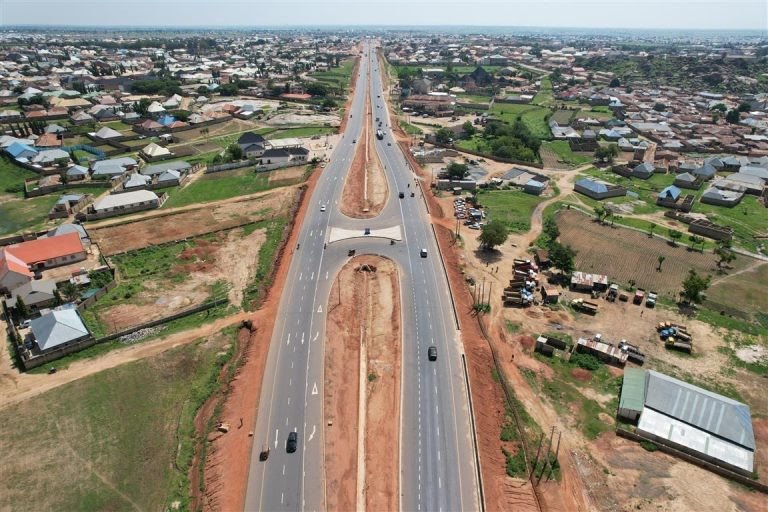FG Drops The Hammer: Julius Berger Ordered To Leave Abuja-Kano Road Project Amid Termination Dispute
"FG Drops the Hammer: Julius Berger Ordered to Leave Abuja-Kano Road Project Amid Termination Dispute"
By Achimi Muktar
In a dramatic move, the Federal Government has given construction giant Julius Berger its marching orders, officially terminating the company’s role in the Abuja-Kaduna-Zaria-Kano Dual Carriageway rehabilitation project. The Federal Ministry of Works issued a 14-day final termination notice to Julius Berger on Monday, following months of stalled negotiations and disputes over cost and project scope.
The decision comes after the ministry cited non-compliance with revised terms, stoppage of work, and Julius Berger’s refusal to remobilize despite directives. Talks had dragged on without resolution, forcing the government to take decisive action.
A statement released by Mohammed Ahmed, Director of Press and Public Relations for the ministry, confirmed the termination was approved during a high-level meeting at the ministry’s headquarters in Abuja. The move follows a warning issued by Works Minister David Umahi, who had threatened to revoke the contract due to the company’s alleged political maneuvering.
Project Delays and Accusations
The project, which was initially awarded to Julius Berger in 2017 under the administration of former President Muhammadu Buhari, has been plagued with delays. While the Kaduna-Zaria section is complete and the Zaria-Kano stretch is nearing finalization, the Abuja-Kaduna section has lagged behind, with only 27% progress over six years.
Minister Umahi recently accused Julius Berger of deliberately slowing down work on the Abuja-Kaduna section in a bid to tarnish the current administration’s reputation. Despite these allegations, the company failed to attend a critical meeting scheduled for Monday, prompting the ministry’s final decision to issue the termination notice.
Julius Berger’s Contract in Jeopardy
In the statement, Ahmed revealed, “Based on non-compliance with the reviewed cost, scope, and terms, stoppage of work, and refusal to remobilize to the site, the Federal Ministry of Works has issued a 14-day Notice of Termination to Messrs Julius Berger Plc for the Rehabilitation of Abuja-Kaduna-Zaria-Kano Dual Carriageway in FCT, Kaduna, and Kano States, Contract No.6350, Section I (Abuja-Kaduna) today, November 4, 2024.”
The contract, which originally cost N155.75 billion when it was awarded in 2017, has undergone numerous revisions and augmentations. Section II (Kaduna-Zaria) and Section III (Zaria-Kano) were partially completed and handed over during Buhari’s administration, but Section I (Abuja-Kaduna) has seen little progress.
Dangote Industries Steps In
With Julius Berger out of the picture, the ministry has already awarded a portion of the road to Dangote Industries. The approval for Section I, Phase 1, which involves a 38km stretch of concrete pavement, was granted to Dangote Industries on October 17, 2024, with a 14-month completion timeline. Meanwhile, the remaining 127km stretch is still assigned to Julius Berger, although that seems unlikely to proceed under the current circumstances.
Umahi's decision to revoke the contract and hand part of the project to Dangote Industries signals the government's resolve to push forward, especially under President Bola Tinubu’s “Renewed Hope Agenda,” which prioritizes infrastructure development.
FG’s Firm Stance
The Federal Executive Council (FEC) had previously approved a rescoping and downward review of the contract cost from N797.26 billion to N740.79 billion. However, Julius Berger reportedly rejected the new terms, leading to the stalemate.
In the face of these challenges, the Works Minister’s decisive move to terminate Julius Berger’s contract marks his 11th contract revocation in just 16 months—a clear indication that the government will not tolerate further delays.
As the saga unfolds, the future of the Abuja-Kaduna-Zaria-Kano Dual Carriageway project remains uncertain, but with the FG's firm stance, all eyes are on who will step up to complete the critical infrastructure project.





















